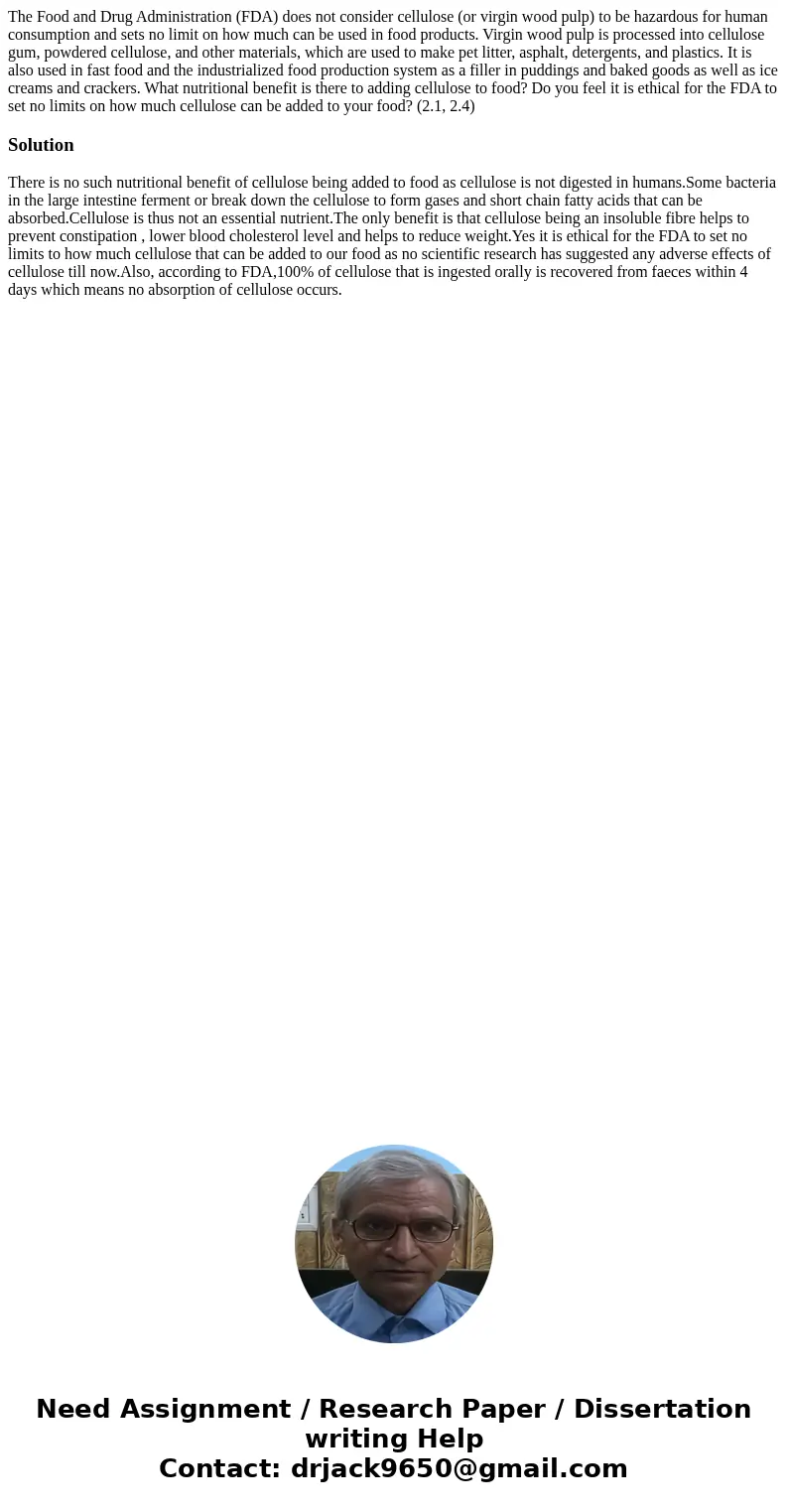The Food and Drug Administration FDA does not consider cellu
The Food and Drug Administration (FDA) does not consider cellulose (or virgin wood pulp) to be hazardous for human consumption and sets no limit on how much can be used in food products. Virgin wood pulp is processed into cellulose gum, powdered cellulose, and other materials, which are used to make pet litter, asphalt, detergents, and plastics. It is also used in fast food and the industrialized food production system as a filler in puddings and baked goods as well as ice creams and crackers. What nutritional benefit is there to adding cellulose to food? Do you feel it is ethical for the FDA to set no limits on how much cellulose can be added to your food? (2.1, 2.4)
Solution
There is no such nutritional benefit of cellulose being added to food as cellulose is not digested in humans.Some bacteria in the large intestine ferment or break down the cellulose to form gases and short chain fatty acids that can be absorbed.Cellulose is thus not an essential nutrient.The only benefit is that cellulose being an insoluble fibre helps to prevent constipation , lower blood cholesterol level and helps to reduce weight.Yes it is ethical for the FDA to set no limits to how much cellulose that can be added to our food as no scientific research has suggested any adverse effects of cellulose till now.Also, according to FDA,100% of cellulose that is ingested orally is recovered from faeces within 4 days which means no absorption of cellulose occurs.

 Homework Sourse
Homework Sourse